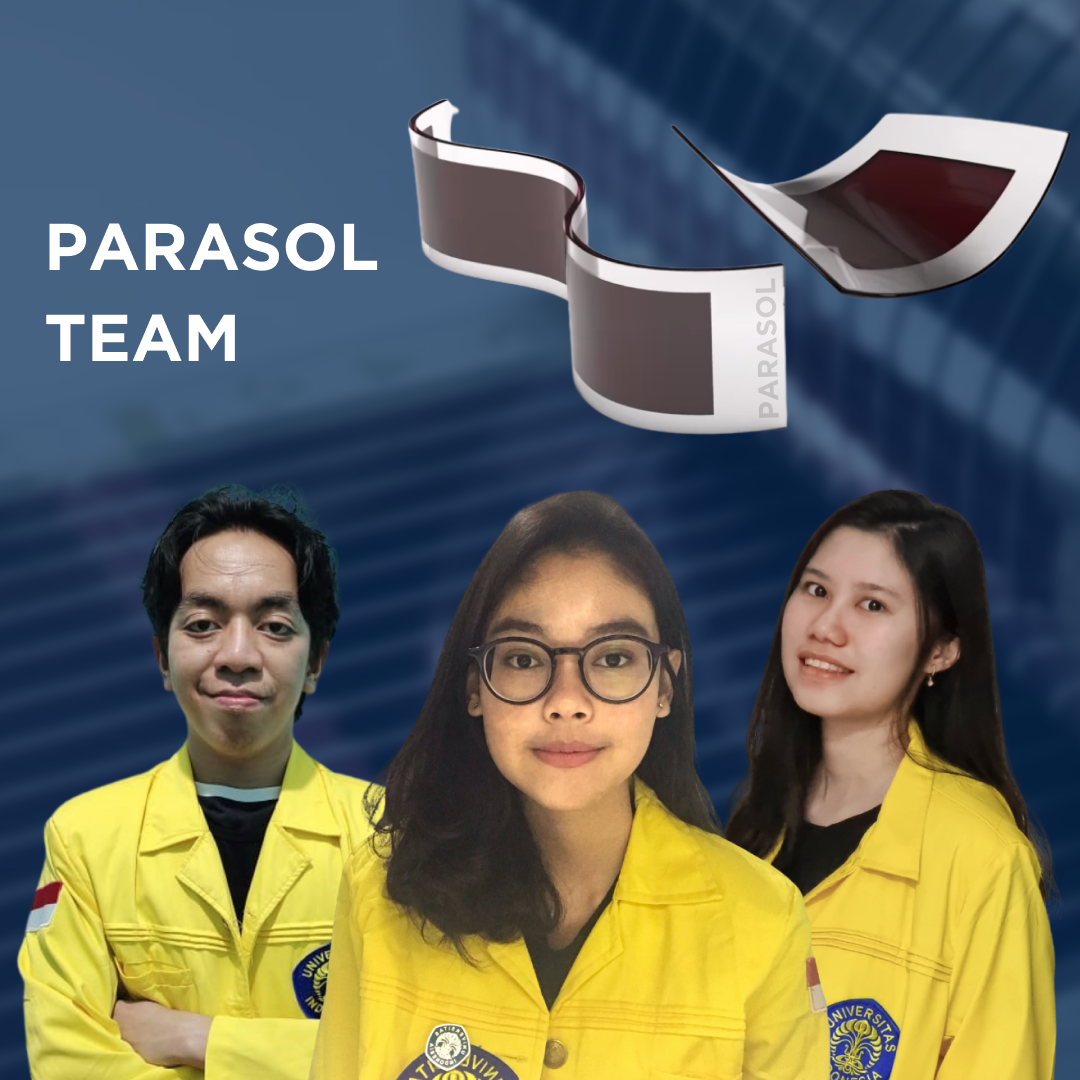Three students from the Faculty of Engineering, Universitas Indonesia (FTUI) initiated a roll solar panel by utilizing plastic waste as one of its components, and they named it Printable Alternative Solar Roll (PARASOL). The three students were Afra Moedya Abadi, Tiffany Liuvinia, and Yosep Dhimas Sinaga from FTUI Chemical Engineering Department, class of 2020.
Thanks to the PARASOL design, the UI team won the ESG Symposium 2022 competition “Hacks to Heal Our Planet: ESG Idea Pitching” Regional Competition organized by PT Siam Cement Group (SCG). At the national level, the UI team first beat 230 teams from Indonesia before advancing to the regional level. In the ESG 2022 competition at the regional level, Team UI returned to victory after defeating five other teams from several Southeast Asian countries representing their respective countries.
According to Yosep Dhimas, they created PARASOL for several reasons, first because Indonesia is the largest contributor to plastic waste in the world. Second, related to the energy crisis, especially with silicon solar panels circulating in Indonesia, there is still a shortage. “From these two backgrounds, we finally moved to make PARASOL. We designed this alternative solar panel innovation in the form of a practical, flexible, and semi-transparent plastic roll. PARASOL utilizes the principle of perovskite solar cells with efficiency values that can compete with conventional solar panels,” said Yosep.
The selection of PET (polyethylene terephthalate) plastic waste was carried out because this type of plastic is the easiest to find and can be recycled at a relatively low cost. This is also in line with the flexible PARASOL principle. PARASOL has a way of working that is similar to silicon solar panels in general, namely utilizing sunlight. It has a practical shape and can work in low sunlight conditions. Its simpler manufacturing makes Parasol far more affordable than conventional solar panels. In addition, PARASOL is a more environmentally friendly solar panel because it utilizes PET plastic waste as one of its components. In addition, PET waste is also the highest source of pollution of all types of plastic waste. Thus, the potential for reuse is greater.
“With this design, PARASOL can produce an electricity conversion efficiency of 15-20%, a service life of about 20 years, and a maximum working temperature of more than 100℃. This proves that PARASOL has performance that can compete with silicon solar panels. Currently, the team is developing a PARASOL prototype with the aim of commercialization. Hopefully, in the future, PARASOL can become one of the right innovations to provide equality for all citizens in Indonesia in providing access to clean and affordable energy,” said the Dean of FTUI, Prof. Dr. Heri Hermansyah, ST., M.Eng., IPU.
***
Bureau of Public Communications
Faculty of Engineering, Universitas Indonesia

